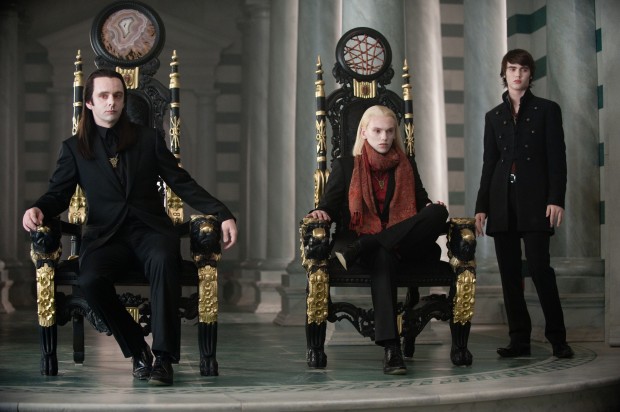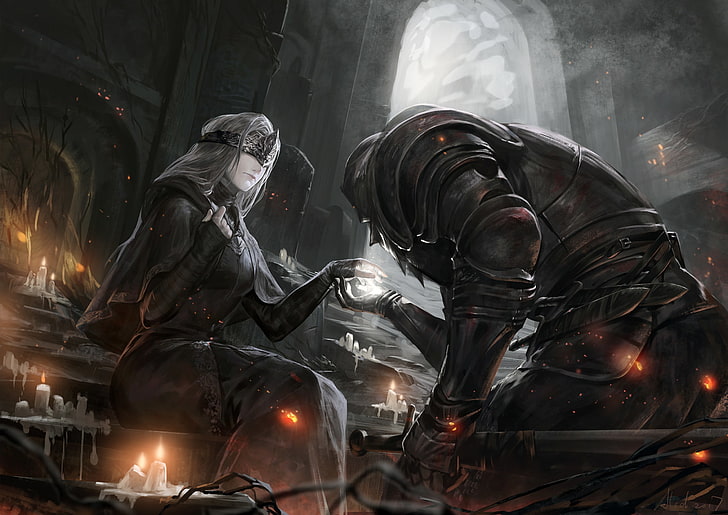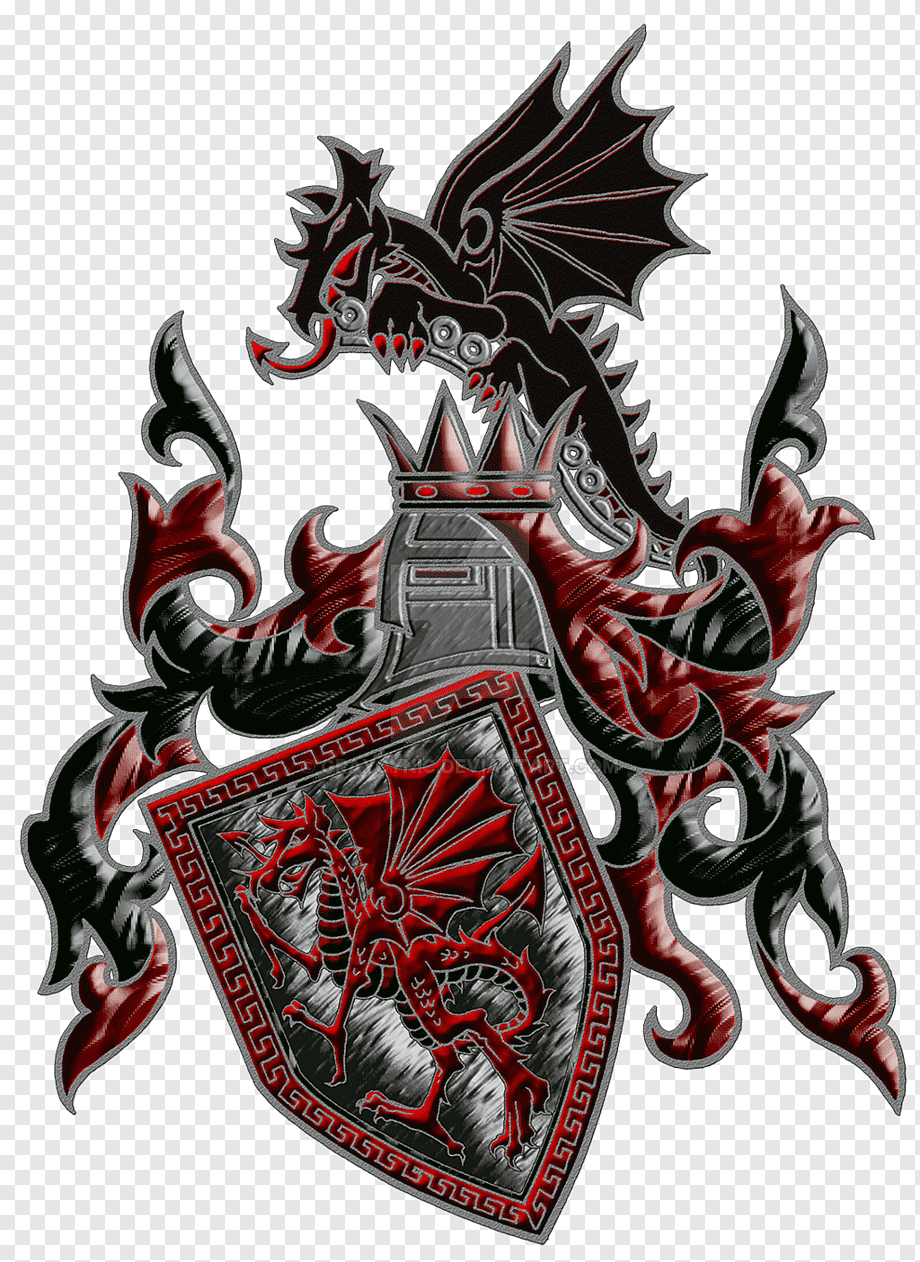Laws Older than Hammurabi

The customs of vampires are many and varied, and have changed over the intervening years between their murky and unknowable past and the modern nights. There are, however, certain laws which remain enforced and which the Masters' of the City impose as a matter of course. Bear in mind that the supremacy of the Master of the City is boundless within their domain, they can rule with an iron fist if they have the personal power and/or clout to do so. Some Masters are weaker, and find themselves governed by those they intend to rule or a collection of elders with the power to enforce their wills. Other Masters rule their domain just as Kings used to rule their country: with an iron hand and an iron will.
The Laws of Vampires are intended to help check their predatory instincts, and to shackle predatory drives to human intellect. This combination permits them to function as 'civilized' monsters. The origins of these laws are vague, with some attributing the code or the Lex Talionis to the Mother of All Darkness, or Caine, or some other ancient creature. Regardless, the laws remain.
The Silence of Blood
The Law Says: "Never shalt thou reveal thy true nature to those not of the blood. Doing so shall renounce thy claims to the Blood."
The very first law, first laid down in ancient times and reinforced in the modern world prior to the legalization of vampires in the United States, is one of silence, discretion, and invisibility. Known in modern times as "Thou Shalt Not Draw Attention to Thyself". Vampires have been and will likely always be hunted. Prior to their gaining legal status, and applicable everywhere else in the world, comes the notion that vampires should not be revealed to humans lest they be destroyed. Vampires may be supreme hunters, but being careless and alerting mortals to their true nature never bodes well for them. Vampires depend on a certain amount of secrecy and deception to keep their nighttime realm secure from the masses of mortals that surround them.
Dominion or Domain
The Law Says: "Thy domain is thine own concern. Thou art its master and all will respect this or suffer thy wrath. All will present themselves when entering, and thou shall protect them in turn. By right, thou art allowed to hunt within the bounds of thy domain, its blood thine own. Accept its responsibilities, minister thy domain, and pay others the same respect thou expect.”
The Master of the City has the power to divide and parcel out smaller portions of the territory they claim and give these smaller portions to vampires whom they wish to reward or bribe. These parcels are typically referred to as Domains. The vampire who is given a domain exerts exclusive hunting rights over that domain and can grant others the right to hunt in that domain, or punish those that trespass. In many ways this is identical to the ancient feudal practice of granting land to nobles who ruled over those domains in the name of a King or Queen.
Holding a domain also requires the vampire, regardless of age or power, to offer hospitality to those vampires who enter and present themselves. While in the domain of another, a vampire can expect to be treated with respect. The owner of the domain is responsible for the safety and well being of guests, and she must share her feeding grounds with them. However, guests who abuse their stay may face strict sanctions or even final death. Because the holder of the domain holds that territory in the name of the Master of the City, the vampire can execute vampires that did not present themselves as required, but abuse of this right is cause for the vampire to lose their domain.
The Master of the City can grant two types of entry into the territory it claims: total or limited. Total entry means that the guest, or new resident, has permission to go wherever it pleases in the Master's territory. It cannot feed or hunt in claimed domain without getting permission from the vampire that governs that domain, but is otherwise free to come and go as they please. Limited entry forces the guest or new resident to present themselves to the holder  of each domain it wishes to enter, and be granted permission to hunt or travel through it. Only those territories that are unassigned or unclaimed and held by the Master of the City are covered by limited entry.
of each domain it wishes to enter, and be granted permission to hunt or travel through it. Only those territories that are unassigned or unclaimed and held by the Master of the City are covered by limited entry.
The current Master of the City of Denver, has divided his territory into sections of territory known as Baronies. The Baronies represent cities that are a part of the greater Denver Metroplex: Thornton, Westminster, Arvada, Lakewood, Littleton, Centennial, Aurora, and Commerce City.
Creating New Vampires
The Law Says: “Thou shalt only sire another with the permission and blessing of thine elder. To create is the providence of the Eldest, for they shall be accountable. Break this, and both thee and thy progeny shall be slain.”
The Law Says: “Those thou create are thine own blood until released from thy charge. Until that moment, their sins, their blood and their punishments are thine.”
Vampires may not turn a human into a vampire without first seeking the permission from the Master of the City. Further, the creating vampire is responsible for ensuring the fledgling is contained, fed, disciplined and educated before releasing the new vampire and allowing them to exist freely. This may take years and should not be done lightly, as any grievances against the child are the responsibility of the sire.
Once a fledgling vampire has been presented to the Master of the City and been accepted, the Sire is free of the responsibility for their Progeny.
Destruction
The Law Says: "Forbidden art thou to spill the blood of another of thy kind. This right belongs only to the Master. It is forbidden for those of younger blood to rise against their elders. The kinslayer among you shall die in turn."
The right to destroy another vampire is something that a Master of the City holds close. This right is traditionally held by the Master, and if one exists, the vampire who holds the position of Scourge. While those that hold domains may destroy trespassing vampires or those that fail to honor the one that holds the domain, this is always done in the name of the Master of the City, and those that do not obtain proper permission from the Master to execute someone are subject to the same fate.
Vassals

The Law Says: "Let those who serve be named greatest of the Children of Seth. Let us protect them from those who would hinder and hurt them, and let us all rise up in outrage should one of those-who-serve be slain by another, for none has the right to kill another’s Servant."
Servants and their vampire masters enjoy a special bond, and while servants who are marked fully come to enjoy some of the strengths of a vampire, they remain more frail and still mortal. Because of the ties between a servant and Master, cunning enemies may choose to target the Servant in order to strike at the Master. This cannot be tolerated. Those that slay a Servant shall be slain in turn. Those that slay a Servant and thereby cause the Death of the Vampire, are Kinslayers and are bound to die under the light of the Sun.
Social Conventions
Vampires arriving in a new territory must present themselves to the Master of the City.
Most vampires take the notion of 'hospitality', or the formal extension of protection and care over those who are welcomed into their home, very seriously. Older vampires in particular hold to these rights from older times, while younger vampires grow to understand it as common practice.
- A host may offer sustenance, entertainment, or other comforts freely and without expectation of anything in return.
- When hospitality is formally requested or offered, both parties must uphold the agreed upon terms. For the host, it usually means providing shelter, food, and protection over the recipient, while the recipent usually offers fealty, or favor, or is calling upon a favor owed.
Greetings between vampires tend to be formal, consisting of the offering of the lesser's throat, wrist, or bend of elbow to the more powerful vampire.
- When a vampire's companion places their hand upon the vampire's wrist, it is an indication that the vampire considers that person their equal and all due respects are expected to be shown towards that person.
- Vampires strictly enforce the law that no vampire shall kill the Pomme or servant of another vampire. Doing so is seen as an attack upon the vampire to whom the servant belongs.
A vampire cannot enter a person's home without permission. If the permission is revoked while the vampire is within, they are immediately pulled out of the nearest exit by an unseen force.
Vampires who do not abide by the established laws, knowingly defy the MOTC's orders, or otherwise cause attention to be drawn to vampirekind are subject to punishment from the MOTC.
